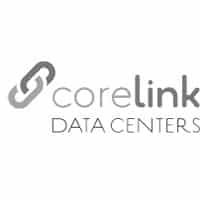Unless you have a source of backup power, whenever your primary power supply is interrupted the function of your data center equipment will be interrupted as well. Without any backup power source, blackouts, brownouts, and power surges can all cause your data center to crash. When a data center shuts down improperly it does not have a chance to save all current data and data can be lost. In addition, when the equipment in your data center is down, business productivity and transactions come to a screeching halt. This can result in not only frustration, but devastating loss of revenue as well.
A battery powered uninterruptible power supply (UPS) provides clean power to your data center equipment, guarding it against primary power surges and drops. During a surge, a UPS provides continuity of power, and your data center equipment continues to function without interruption. In the event of a drop, a UPS prevents data loss by allowing a period of time after interruption of the primary power source for your servers to save all current data and shut down properly. While this is obviously advantageous, problems continue if your primary power source continues to be down. In the past, a UPS allowed for 7-10 minutes of power before shut down. Times have increased to two hours or more, but this is still not enough in the case of many brown- or black-outs. Once the battery power of a UPS runs out, business productivity ceases and cash flow begins to be affected.
So the question becomes whether or not you should supplement your battery-based UPS with an emergency generator to ensure power continuity for your data center equipment. For business functions to continue, critical applications need a constant source of high quality, uninterruptible power which can subsist over a long period of time. The most advanced systems are often found in data centers with a UPS and a generator. This combination of equipment can successfully maintain a continuity of power over an extended period without any interruption.

A generator creates mechanical energy which is then converted into electricity. Various generators require different forms of fuel, including kerosene, diesel, or petrol. While small devices or individual computers can use battery power to continue functioning for an extended period when power is down, data center equipment requires the degree of power that can be provided by a generator.
Generators are beneficial because they do not require an existing power supply to function. They do not require a stored power supply either. By running on fuel, they are able to function despite the loss of primary power. A generator is useful because of its ability to supply enough electrical current for all the equipment in your data center. As long as you supply ample fuel, the generator can continue to function and supply power to your data center. As a result, data is maintained and business function goes on uninterrupted.
Continuity of power is crucial to business function. Power surges, brownouts, and blackouts are an inevitable reality. While uninterruptible power supplies can allow enough power for data salvage and short term continuity of power, they cannot provide such power of a long period of time. You can ensure power continuity by using a generator in addition to your UPS.




























